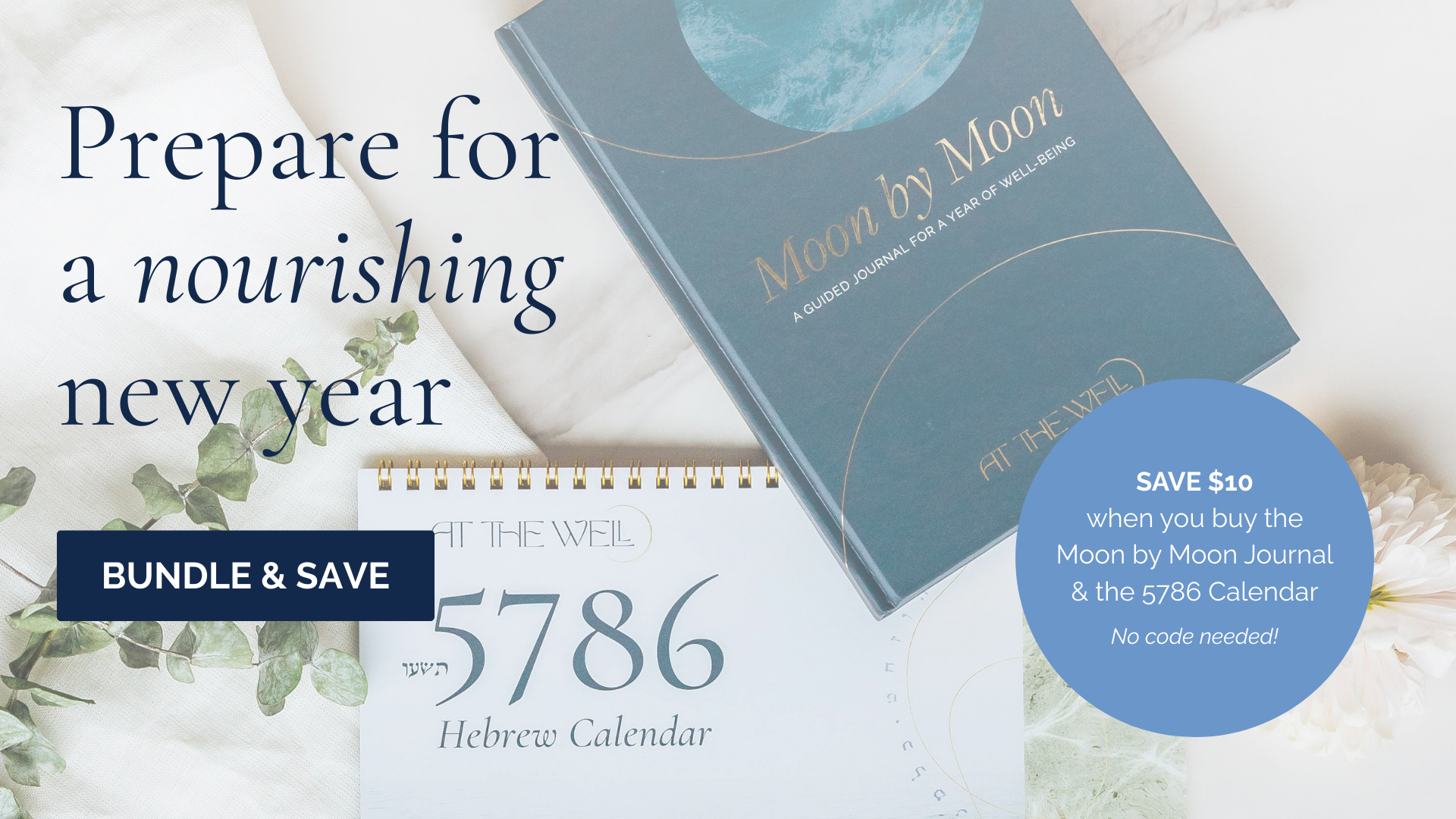In early November 2023, I came across an Instagram post titled “Weddings in Times of Tragedy.” I saw the post just one month after the surprise attack that would launch Israel and Gaza into unthinkable violence — just a few weeks before my wedding.
So I clicked.
How could I reconcile the tremendous heartache I felt with the joyous celebration I was about to experience? In the words of the Instagram post, “Are we allowed to feel joy in times of tragedy, war, and terror?”
The post (written by Rabbi Jen Gubitz for Lilith Magazine, and posted on Modern JewISH Couples) highlighted a story from the Talmud, in which our ancient Rabbis wrestled with that question. In that story, a funeral procession en route to the cemetery intersects in the center of town with a wedding procession headed the other direction.
“The ancient Rabbis wonder,” according to the post, “What do we do when joy and grief meet? Does one procession take priority over the other?”
Although Jewish tradition holds many wise practices for grief and mourning, the Rabbis teach that it is not the funeral procession that takes precedence. It is the wedding. “The honor of the living takes precedence over the deceased” (Tractate Semachot 11:6).
Rabbi Gubitz imagines that moment, that all-too-human meeting of giddy excitement and heartbreaking loss:
“As the beloveds cross the road to their chuppah, and the mourners in the funeral procession look out from their sadness through the car window, for a split second they see one another and look each other in the eye.
“The mourners witness as joy proceeds, the beloveds witness the fragility of life, and neither one’s existence can steal from the other’s truth. Because loss and grief and joy and gladness are deeply intertwined at every moment of being human.”
The words that echoed within my heart were these: “Neither one’s existence can steal from the other’s truth.”
Just a few weeks later, I stood beneath the chuppah with my beloved. I felt the joy of possibility, of connection, of commitment. My wedding in America certainly didn’t heal wounded hearts in Israel or in Palestine. But I hope that it did bring a sense of comfort and happiness to my friends and family. And even in our joy, we carried with us the ever-present thoughts of the suffering of those in Israel and Palestine.
A wedding is a marker of a lifetime commitment to joy, as well as a lifetime commitment to the inevitable grief that exists as part of the human condition. I can only pray that in our lifetime and as a couple, the grief is minimal and the joy magnified. And yet, when the grief feels unbearable, as it often has this year, I must acknowledge that sadness, continue to listen to the suffering, and do everything in my own power to minimize it.
Since getting married, I have traveled to meet friends’ new babies. My husband has cooked delicious meals for his loving and local grandparents. He has experienced profound professional success and I have hit equally profound roadblocks.
We have, simultaneously, read about the horrific hunger those in Gaza continue to experience, and the countless lives lost. We worry and pray for those still held hostage in Gaza. We have mourned the deaths of the seven World Central Kitchen aid workers killed. And I often think of the babies and children with no homes or access to a basic meal when I close my eyes at night.
When I open them the following morning, I gather strength from the joys I feel: the hostages who are finally home with their loved ones, the appreciation I feel for my husband’s daily support in every aspect of my life, and the warmth of additional family members I have gained through our marriage.
“Because loss and grief and joy and gladness are deeply intertwined at every moment of being human.”
The Hebrew month of Av, which holds both the saddest day of the year (Tisha B’Av) and one of the most joyous (Tu B’Av) is another reminder that these intensities of life are inextricable from one another.
Joy won’t look the same every day. But, ultimately, it is okay — even necessary — to let joy lead the way.
At The Well uplifts many approaches to Jewish practice. Our community draws on ancient Jewish wisdom, sometimes adapting longstanding practices to more deeply support the well-being of women and nonbinary people. See this article’s sources below. We believe Torah (sacred teachings) are always unfolding to help answer the needs of the present moment.
Weddings in Times of Tragedy, Modern JewISH Couples (Instagram)

